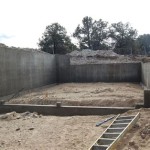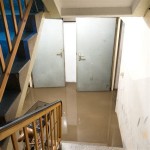Is Landlord Responsible For Flooded Basement
As a homeowner, it's important to be aware of your rights and responsibilities when it comes to leasing property. One common issue that can arise is flooding in the basement, which can cause significant damage to your belongings and create a health hazard. If you're a tenant and your basement floods, it's natural to wonder who is responsible for the damage: you or your landlord?
The answer to this question can vary depending on the specific circumstances of your lease agreement and the cause of the flooding. However, in general, landlords are responsible for maintaining the structural integrity of the property and ensuring that it is habitable for tenants. If the flooding is caused by a problem with the property, such as a leaking roof or faulty plumbing, the landlord is likely responsible for the repairs and any resulting damages.
However, if the flooding is caused by an event outside of the landlord's control, such as a natural disaster or heavy rainfall, the landlord may not be liable. In such cases, the tenant may be responsible for the cost of repairs and cleanup, unless they have renters insurance to cover these expenses.
It is important to note that some lease agreements may include specific provisions regarding flooding and the responsibilities of the landlord and tenant. For example, the lease may state that the landlord is responsible for repairs if the flooding is caused by a problem with the property, but the tenant is responsible for cleanup and any resulting damages.
If your basement floods, it is important to notify your landlord promptly and document the damage with photos or videos. You should also contact your insurance company to file a claim if you have renters insurance.
To avoid disputes over flooding, it is important for both landlords and tenants to have a clear understanding of their respective responsibilities. Landlords should ensure that the property is structurally sound and habitable, and tenants should be aware of the risks of flooding and the potential financial implications.
Here are some additional tips to help prevent basement flooding:
- Keep gutters and downspouts clean and clear of debris.
- Seal any cracks or gaps around windows, doors, and pipes.
- Install a sump pump and battery backup if you live in an area prone to flooding.
- Elevate your belongings off the floor in case of flooding.
- Purchase renters insurance to cover the cost of repairs and damages in the event of flooding.

Landlord Responsibility In The State Of Ohio Who S Responsible For A Flooded Basement

Who S Responsible For Water Damage Tenants Or Landlords

Asking About Flooding And Mold Is A Renter S Responsibility When Seeing An Apartment

What Damage Can Floods Do Ideal Response

Who Is Responsible For Water Damage In A Leased Commercial Property

A Landlord Responsibilities For Cleaning Up Storm Related Sewer Backup

Who S Responsible For Water Damage Tenants Or Landlords

Are Landlords Responsible For Flood Damage
Can You Get Flood Insurance For A Basement Apartment Quora

Who S Responsible For Water Damage Tenants Or Landlords Pauldavis Ca








